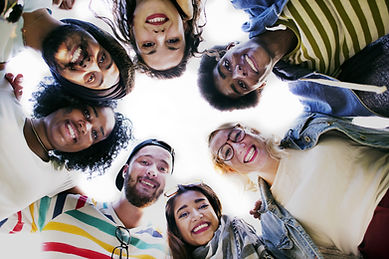We the People:
How One Teacher has Increased Student Civic Awareness
By: Gabriela Turriago-Lopez and Jessica Chen
“Civics, technically, is the study of the government. There is never a right answer, there is your opinion, and you need to back up your opinion with evidence. Don’t stop learning, because the world doesn’t stop.”
- Cynthia Burgett, Rachel Carson Middle School civics teacher

Cynthia Burgett is a civics teacher at Rachel Carson Middle School, and, with the help of two students, she founded a We the People program within Carson, which later became a full-time class. We the People focuses on the Constitution and the country. Within each class of students, there are six teams known as units. Each unit focuses on a different subject material throughout the year; for instance, Unit 1 focuses on philosophy. In contrast, Unit 5 focuses on Supreme Court cases. Each unit then testifies their knowledge in front of a panel of judges at regional, state, and national tournaments.
Burgett first heard about We the People at an information session. She was interested and talked to her students about the program. In her class, two girls started to advertise We the People as a club to their peers. As Ms. Burgett said, “They just ran with it… without them, I don’t know what I would’ve done.” The club went on to win second in the state-level competition.
Burgett continues to be inspired by her students when they ask engaging questions during class. “Every time they ask a question and I don’t know the answer, they motivate me to continue learning.”
A few years after creating the We the People Program, Burgett went to a middle school session of We The People, where one school “blew her away.” She asked what their secret to success was; they told her it was because they were a class (and not a club). Afterward, Burgett returned to her school and talked with the director of student services.
Burgett recounted that “the director loved it... if it wasn’t for the director I wouldn’t have been able to turn We The People into a class.”
Burgett also got the help of parent volunteers. Parents helped by questioning students on their knowledge of the material acting as “parent judges”, this helps to mimic congressional-like hearings to practice for tournaments. Burgett says that “parent involvement was critical to the success of the program.” She mentions another challenge that she faces with students every year: “We the People is student interest driven..the challenge is getting kids who applied and passed the interview process for the class to do the necessary work. For instance, Unit 1 is really hard since you have no background” and Burgett has encountered students that “didn’t want to do the work.”
In 2015, Burgett’s We The People team won Nationals for the first time, which Burgett considers the most memorable moment in her experience with We the People. At Nationals, Burgett’s team was competing against many others, including one from Indiana. “Indiana is supported by the Indiana Bar Association,” Burgett stated. However, her team from Rachel Carson is only supported by community volunteers, most of whom are parents. Many students also look back on victorious moments with satisfaction, happy that they have also made their parents and their teacher proud of their accomplishments in the course of this class. After every competition, “parents saw their kids in a whole different light; they respected them more.”
Through We The People, Burgett also hopes to help students learn what makes a strong team.
“What makes a strong team is the ability to recognize your strengths and weaknesses, and not have so much ego involved…a good unit shares the workload, not one person does everything.”
Burgett is motivated by the goal of helping educate our “future voters.” She “wants an enlightened student body...I hope kids get interested in checks and balances and separations of powers.” Burgett believes this information is important. She has also found that “students develop interview skills..and confidence.” Burgett credits this improvement in real-world skills because, “at the end of the year, students have pushed themselves harder than most 14-year-olds, and they also have to work with people that they may dislike.” Burgett also hopes they gain a “passion for our country and our Constitution.”
When guiding her students in We The People, Burgett wants them to learn about civics as a whole.
“Civics, technically, is the study of the government. There is never a right answer, there is your opinion, and you need to back up your opinion with evidence. Don’t stop learning, because the world doesn’t stop.”
